Joe Knight’s One Ocean International Watermanship Course is all about using the ocean as a medium for personal discovery, but it was a personal catastrophe that birthed the course and changed the course of Joe’s life.
All images: Tim Campbell Photo.
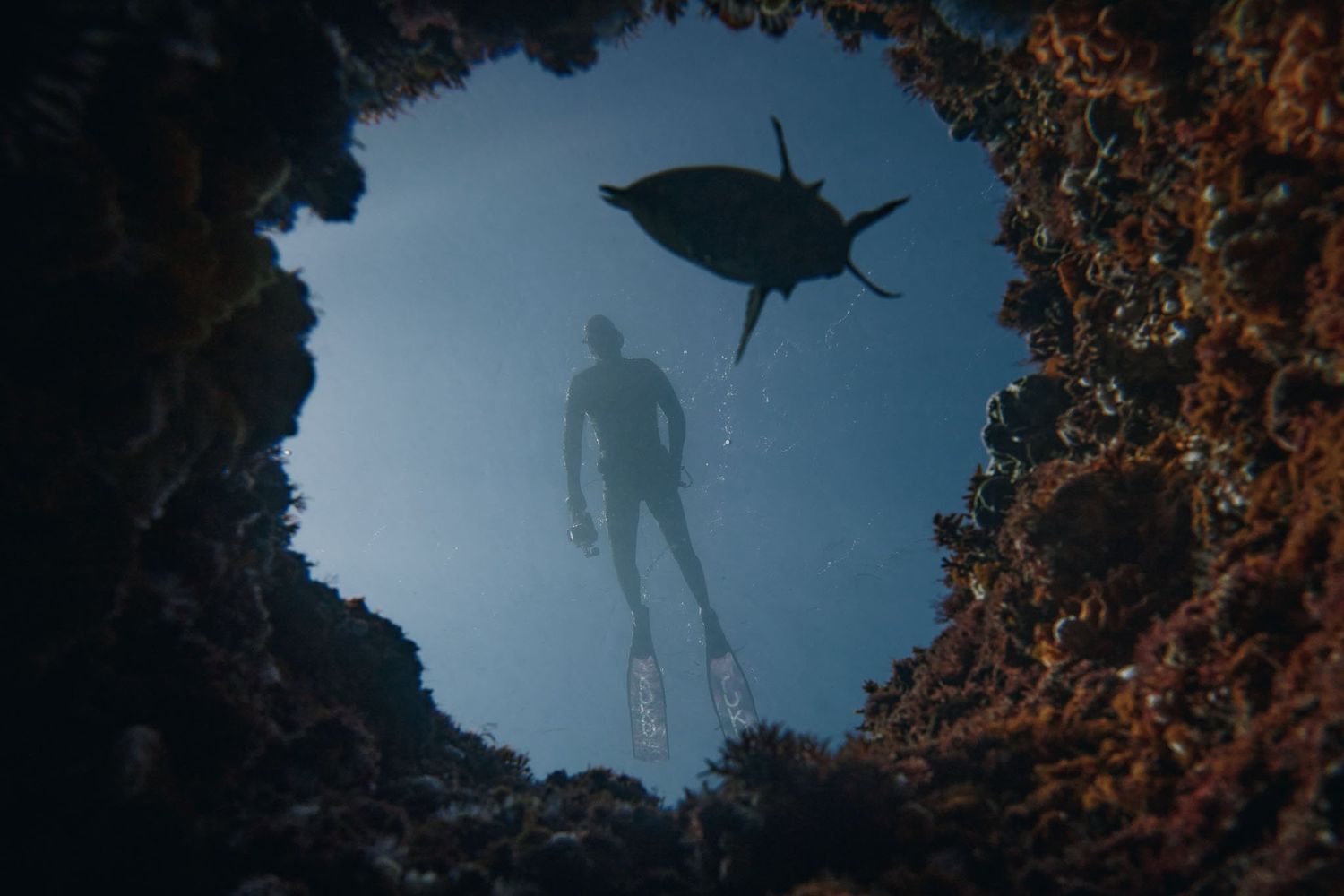
Freediving instructor Joe Knight from One Ocean International has a holistic approach to teaching watermanship.
Joe Knight’s One Ocean International Watermanship Course is all about using the ocean as a medium for personal discovery, but it was a personal catastrophe that birthed the course and changed the course of Joe’s life.
All images: Tim Campbell Photo.
Joe grew up spearfishing competitively in the frigid waters around Victoria’s Mornington Peninsula. He was fanatic about diving from a young age and when he finished school he joined the navy and began training as a clearance diver, then later a medic.
The navy was all about chasing numbers, says Joe; diving was highly competitive, and he strived to push his own limits and be the best. He retained this attitude even after discharging from the navy in 2008 and starting a freediving school in Byron Bay.
But in 2013, Joe was working as a safety diver at an international freediving championship event in the Bahamas when he witnessed the tragic death of freediver Nicholas Mevoli. Witnessing the death affected him deeply, says Joe, and completely changed his relationship with diving and the ocean.
“After Nick passed away, things were really hectic for me. It made me completely rethink what I was doing, why I was diving and what I wanted out of my ocean exploration, basically my own journey. So that really shifted me around. I basically stopped all competition, didn’t do it anymore. And I started to focus on that journey of self-discovery that you get through using the ocean as a medium.”
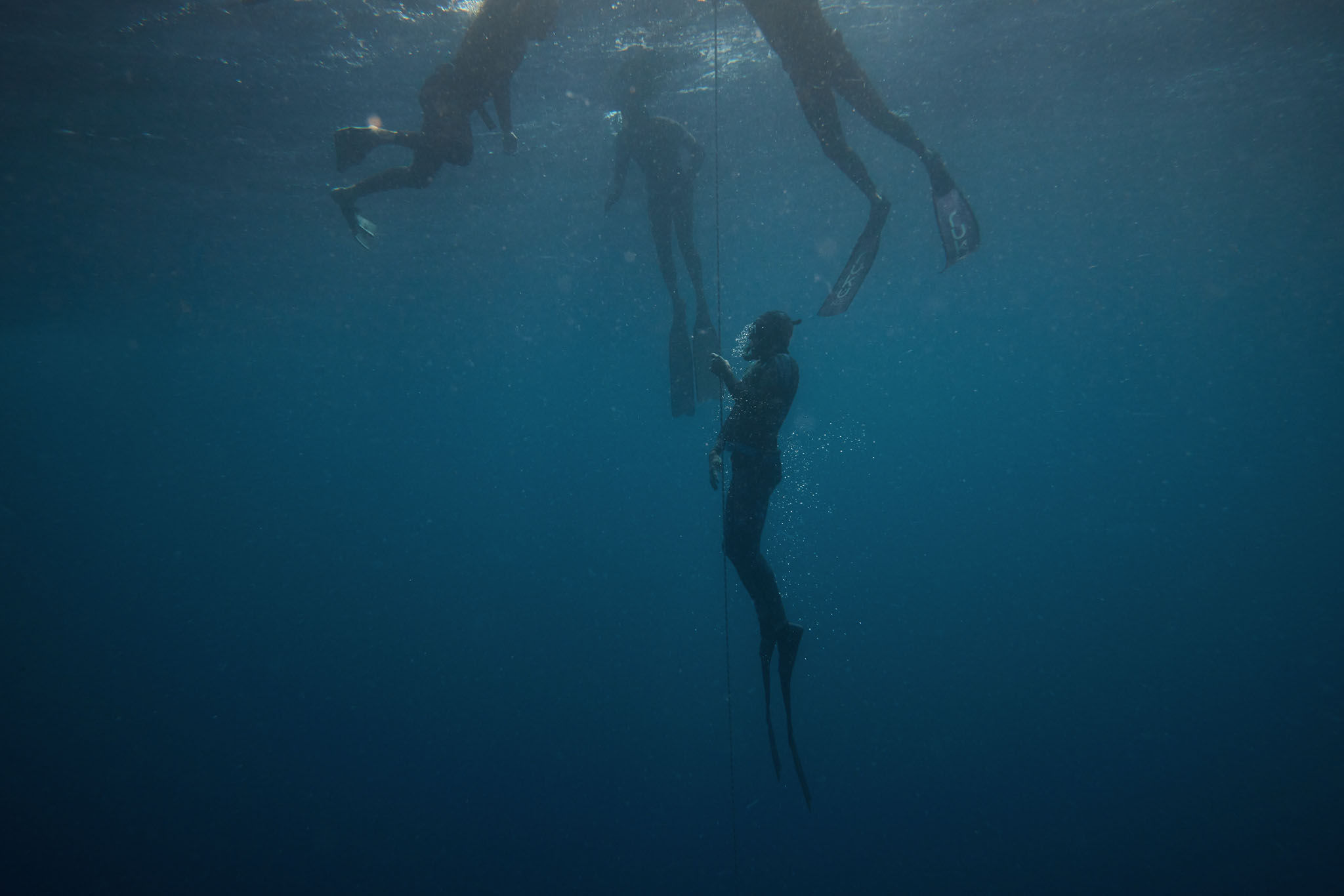
Joe spent the next year travelling, learning from the best freedivers in the world, and reimagining his relationship with the sport and the ocean. He rediscovered diving for the pure joy of it and developed a holistic approach to teaching watermanship.
“I was working with Umberto Pelizzari, the first man to dive to 100m. He really pushed me to find that holistic side of diving, and I learned how good it is to be passive and to learn organically and to have the really long journey with ocean exploration and free diving,” he says.
“[It became about] not chasing numbers or depth, just chasing the feeling, and the beauty of what freediving is. It was the most amazing experience I’ve had in my freediving career. And that shifted me into teaching watermanship. It all aligned and pushed me into teaching what I teach now.”
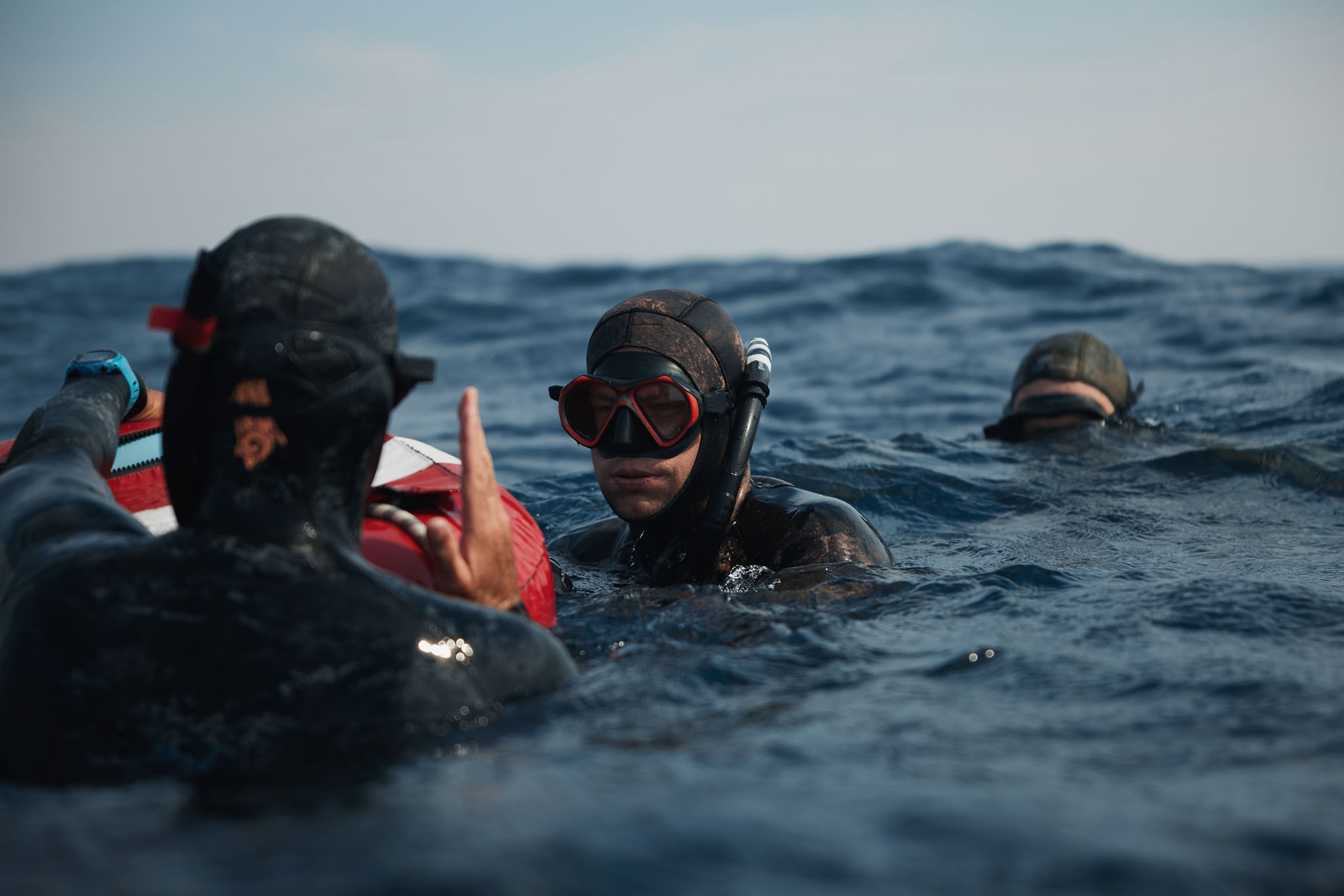
Joe’s Watermanship course is designed to broaden ocean awareness and safety. It uses a holistic approach to support student to new levels of capability, and better understand the ocean and themselves, says Joe.
“All of us in One Ocean, we’ve all been paramedics. We obviously teach ocean safety and rescue and all that sort of stuff. But we also teach anatomy, physiology, and science. We teach the discipline of apnea, or breathhold, and how to basically stay calm and be confident in all ocean situations without the aid of craft. You’re on your own, you’ve got no gear. We teach people how to be physically and mentally prepared for those situations.”
When people talk about diving, says Joe, it can be divided into two main categories: scuba diving and freediving. Scuba is done with the aid of compressed air, whereas freediving relies on breath-holding. Each has different motivations and offers different experiences, says Joe.
“Scuba diving allows you to get really macro. You can spend a great deal of time looking at specific details of say a coral reef or a sponge garden, which is amazing. It’s so cool.”
“Freediving is using diving as personal development, to see how far you can push your limits. It’s also about diving for the pure joy and meditation of it. You’re just in your own little world, and the best thing about it is your situational awareness of the ocean and the things around you.
“As Umberto Pelizzari said, ‘the scuba diver dives to look around, the freediver dives to look within’.”
You’re on your own, you’ve got no gear. We teach people how to be physically and mentally prepared for those situations.
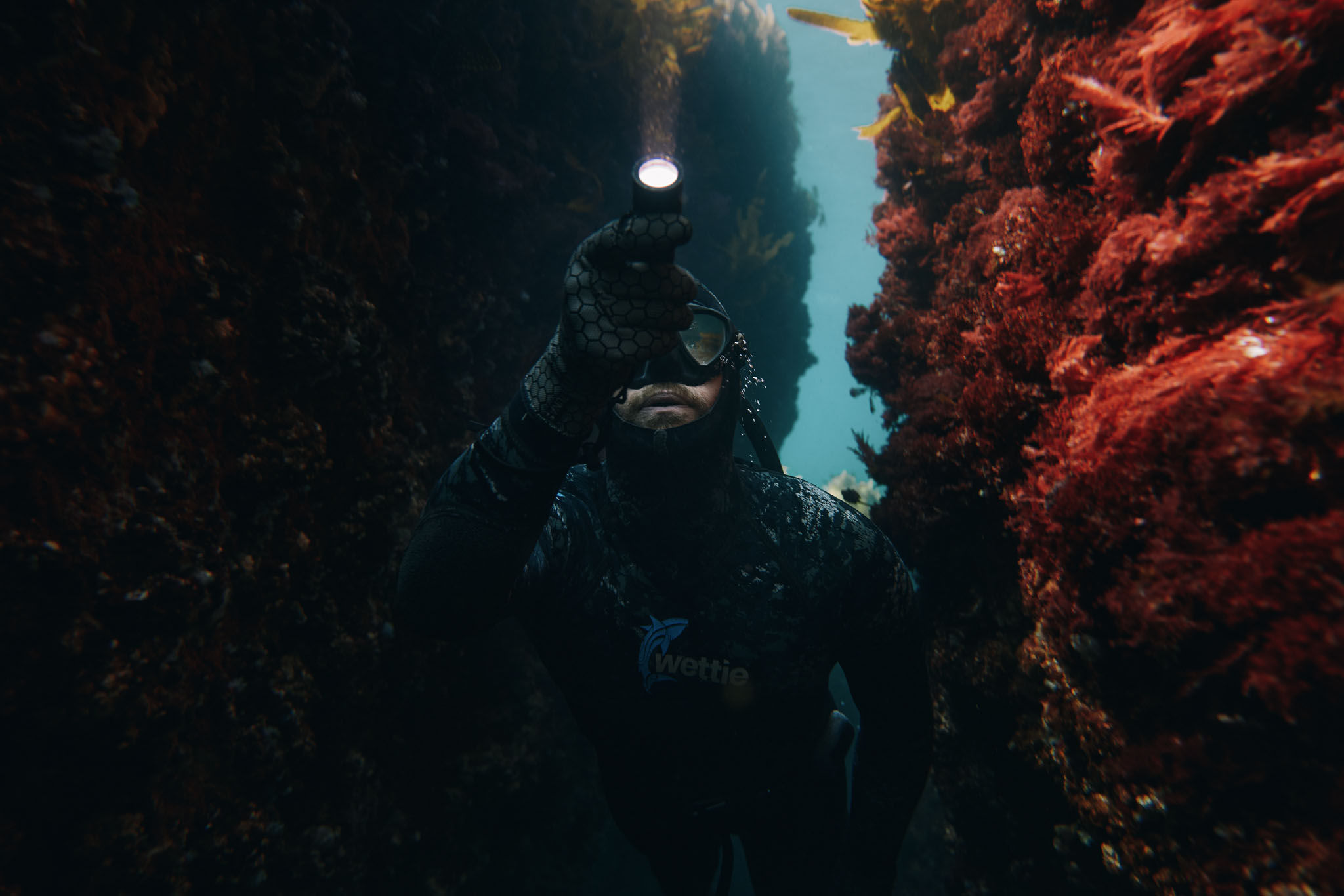
Joe has scuba dived and freedived many iconic locations around the globe, and says that for him, the Margaret River Region still offers some of the best diving in the world.
“I’ve dived all over the world, from the Middle East to the Pacific to all through Asia, and between the Capes, from Augusta to Dunsborough, is still the most fascinating diving I’ve ever done,” he says.
“You get the Leeuwin Current coming down the coast, and that brings all these tropical fish down in the right time of year. But then you’ve got massive granite outcrops and kelp. You’ve got all these massive sponge gardens and amazing anemones.
“You never know what you’re going to see. You might see whales and dolphins, and amazing shark species like bronze whalers and hammerheads. You get big pelagics like Kingfish and Samson fish and Spanish Mackerel at the right time of year. And of course, all the residential reef fish too.”
I’ve dived all over the world, from the Middle East to the Pacific to all through Asia, and between the Capes, from Augusta to Dunsborough, is still the most fascinating diving I’ve ever done
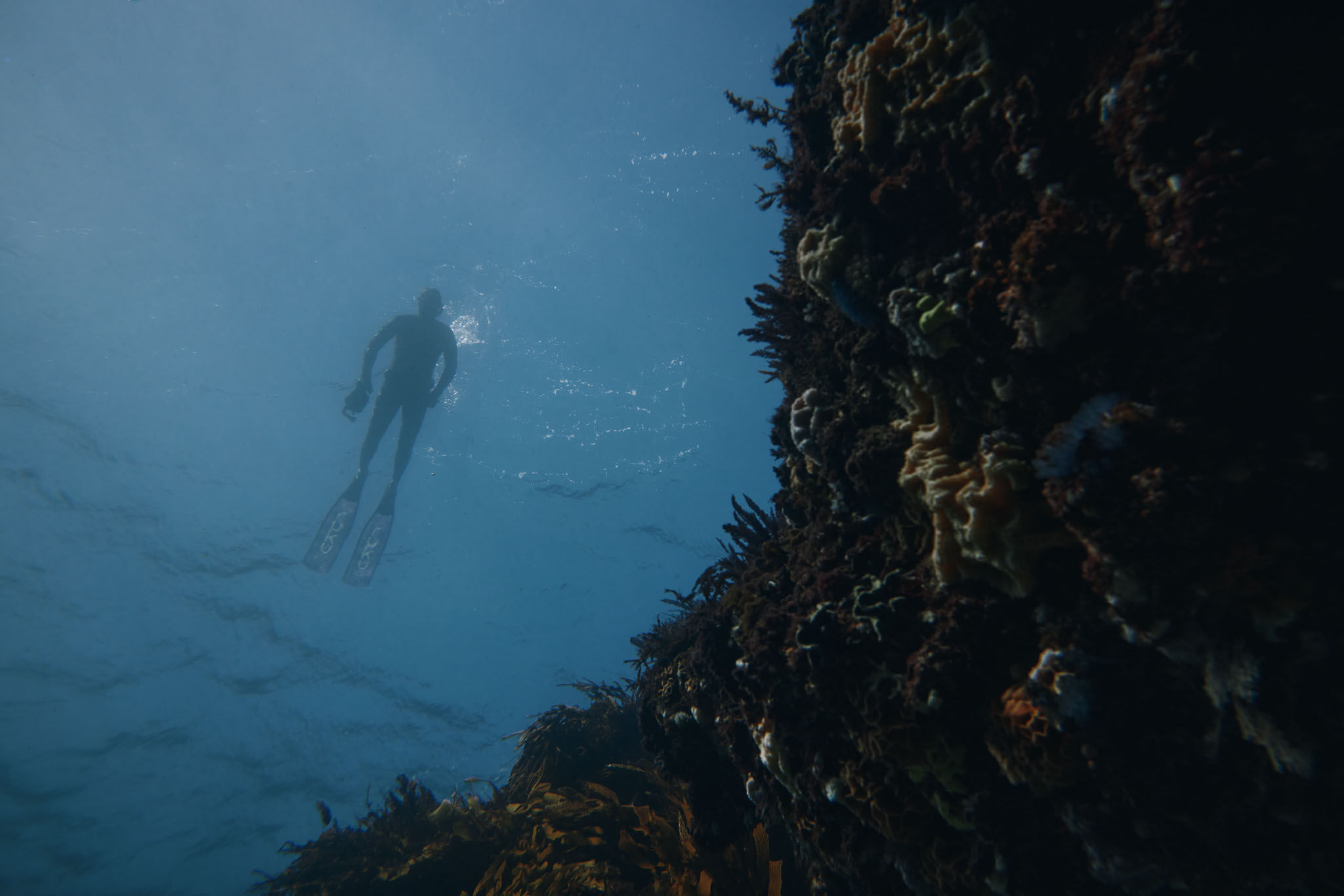
Joe says it isn’t too hard to find somewhere special to enjoy diving in the Margaret River Region and much of the coastline is fairly accessible.
“Up in Geographe Bay you’ve got the Swan Wreck, where you can take a tour and that’s pretty amazing. You’ve got Eagle Bay, Castle Rock, Rocky Point, and that area, there’s really beautiful snorkelling and freediving there. And around the other side you’ve got Sugarloaf, which is pretty accessible. But seriously, there is so much,” he says.
“Down south, just north of Redgate is a pretty stunning area too. One of the safer spots is the lagoon area just in front of the White Elephant. It’s so beautiful and full of caves, and it’s a real fish nursery.”
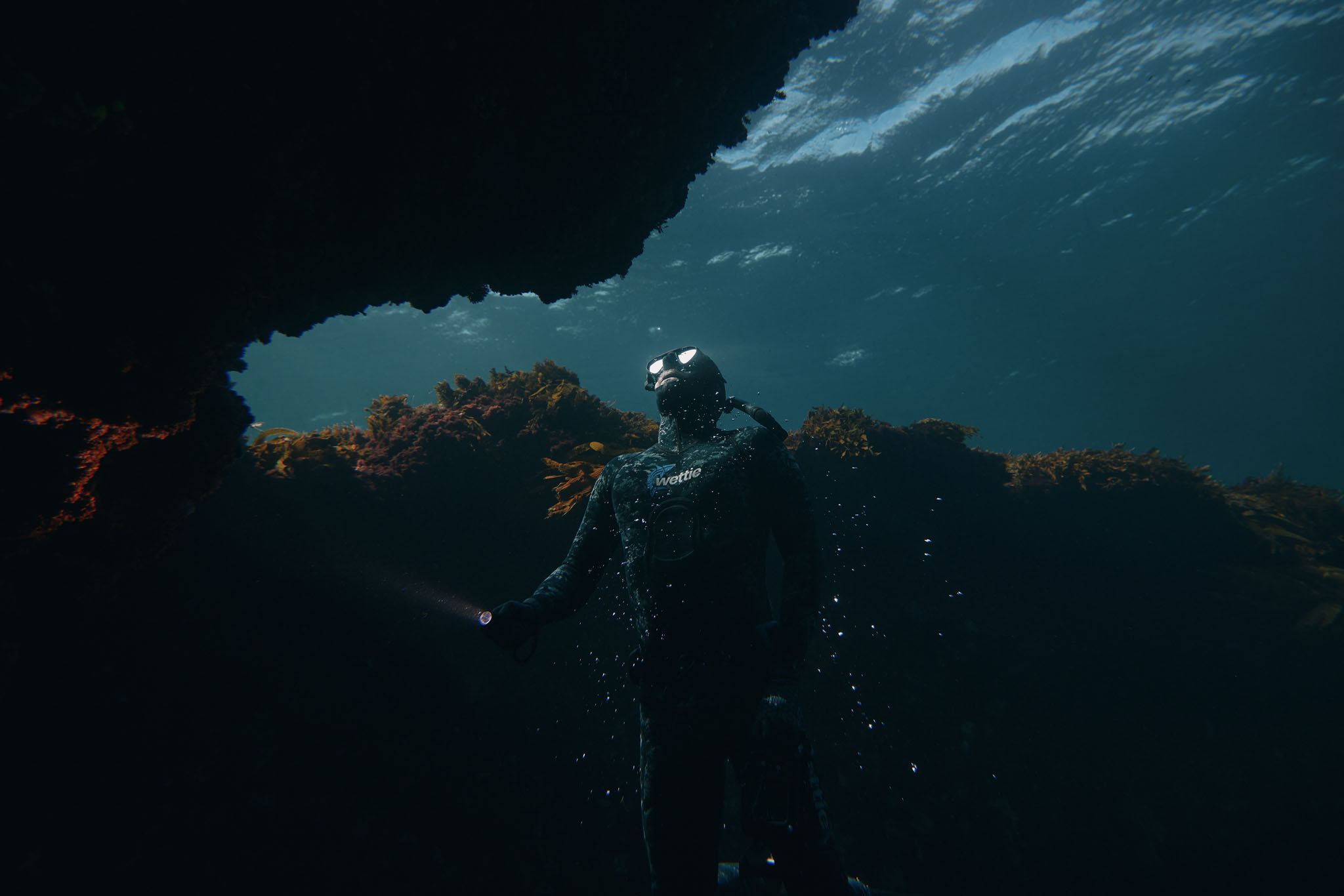
Safety is paramount when diving, and there are a few necessary precautions to take, says Joe.
“First up you have to be a strong swimmer. You have to know your ability in the ocean and know your limits. Freediving in the Margaret River Region is definitely not for beginners, aside from the lagoons at Prevelly and Yallingup,” he says.
“You definitely don’t want to be diving by yourself, ever. You always wanna let people know where you’re going for and how long you’re going for and things like that.
“And knowing the ocean at the time of year in that particular area. I always say to people, if you want to go and dive Redgate, go for walks along the beach, watch it, have a body surf. Watch it on a good day and a bad day and start to get an idea of where the dangerous areas are and where the safe areas are.”
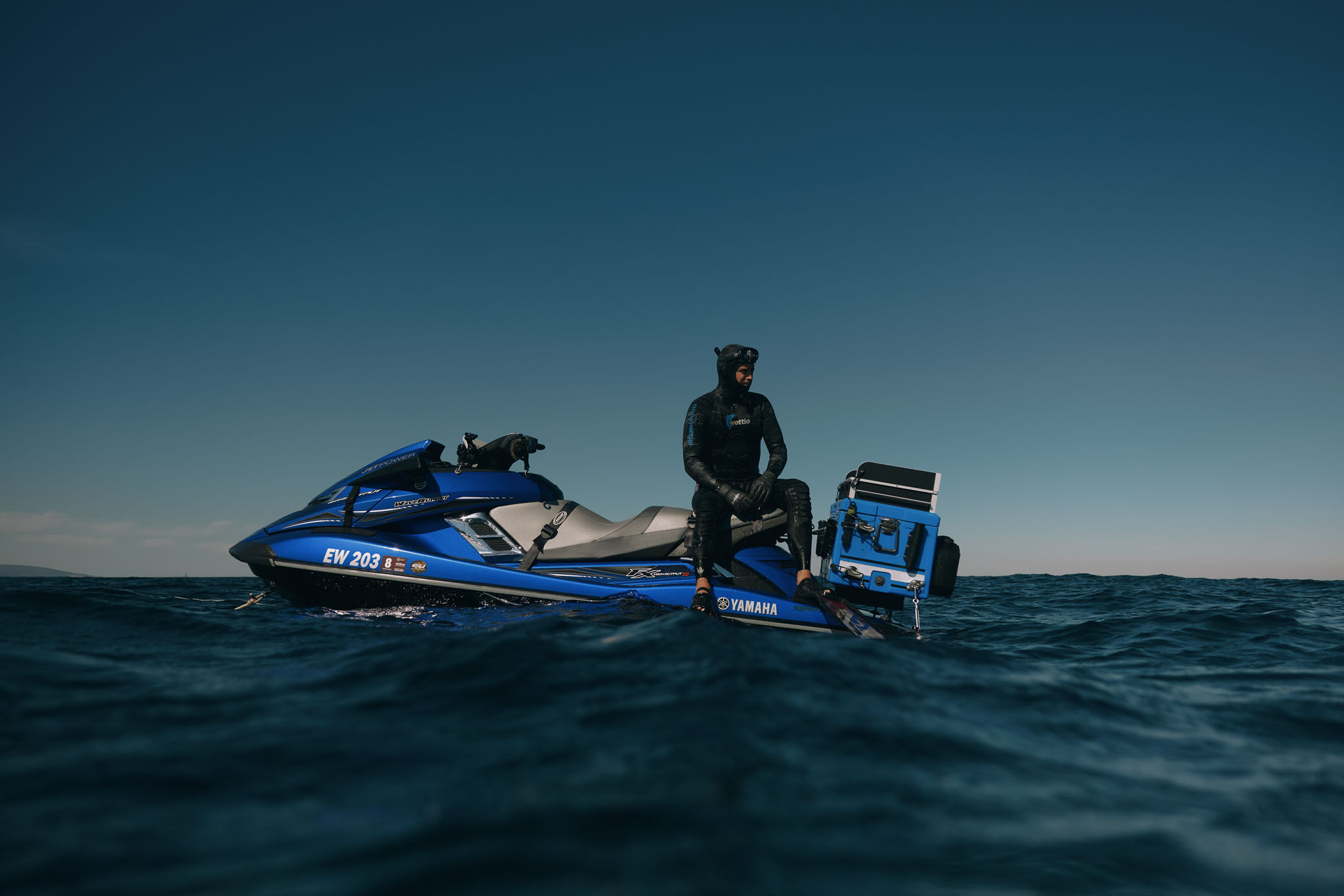
It’s also important to remember that both the true beauty and danger of diving is that you are entering an environment where you are not entirely in control, says Joe.
“It’s also a massively rich ocean, full of wildlife, and we’re entering the ocean at our own risk. Certain times of year there are more predators around, like when the salmon are running or the whales are migrating. And you can get that info from speaking to fisherman, or ringing and speak to the Department of Biodiversity, Conservation, and Attractions.”
“In saying that, the actual freediving, surfing, scubadiving, that’s all a byproduct. It’s really all about the other stuff around it. Like setting up a trip, going to a new place, getting all your gear ready, experiencing something new with friends. That’s all the stuff that makes the true adventure. That’s what it’s all about.”